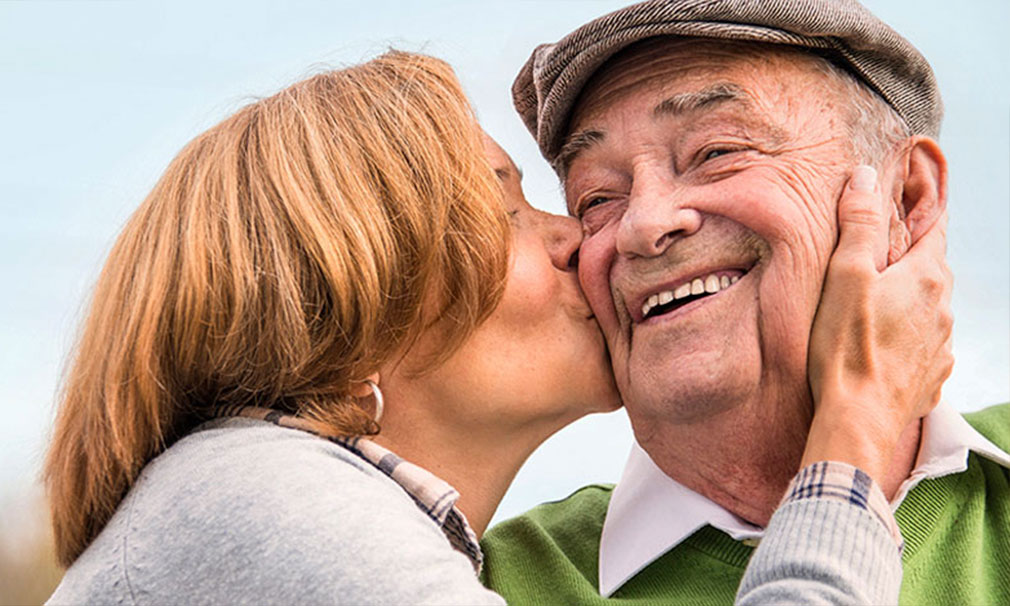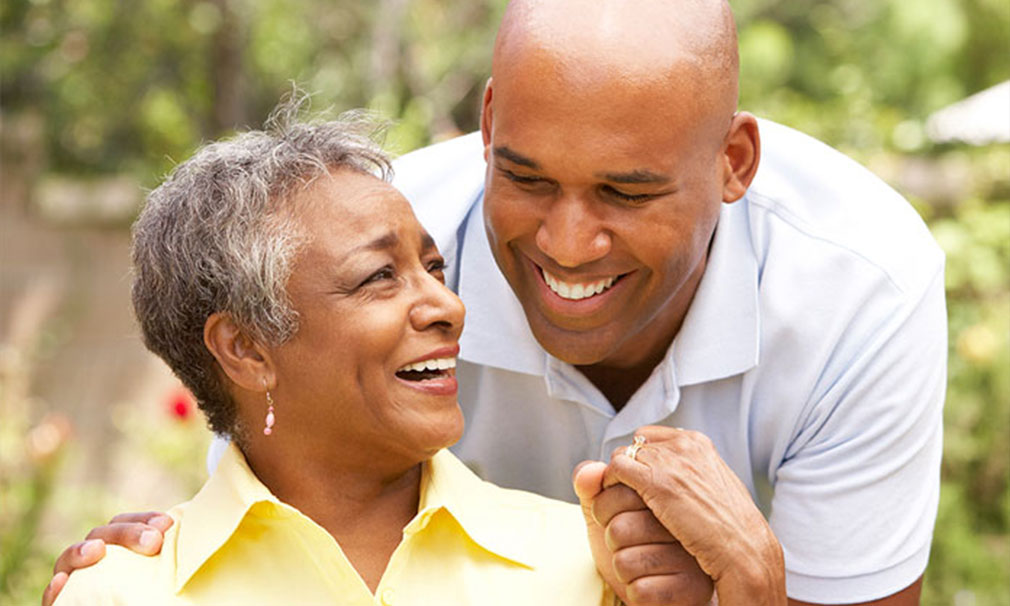The first step to get the most out of your loved one’s health care coverage is to know the parts of Traditional Medicare.

We're here to help your loved one
We know you want what’s best for the person you care about. And helping them with their health coverage is just once piece of that. Use the resources on this page to learn more about Medicare and Aetna Medicare Advantage. Download helpful information to help make caring for your loved one easier.
What are the parts of Medicare?
How does Medicare enrollment work?
Turning 65 is important when it comes time to enroll in Medicare. But you’ll also need to know how Medicare enrollment works. See what your loved one needs to do to make sure they’re enrolled in the City of New York Retiree Health Plan.

What’s included with Aetna Medicare Advantage plans?
All Aetna Medicare Advantage plans offered through the City of New York include a variety of resources to help your loved one live their best lives in retirement. These programs include:
Our Resources For Living program can help you better manage your needs, or those of a loved one. It gives you access to caring consultants who help you find services and resources in your community. And it’s available at no extra cost.
Resources For Living is available to all Aetna Medicare Advantage plan members and people like you who help them with health care decisions — and it’s easy to use. Simply call 1-866-370-4842 (TTY: 711), Monday to Friday, 8 AM to 6 PM all time zones, and tell us what you need. Our consultants will research and give you options. The call is free. You pay for any services you choose to use.
Here are just a few examples of services we can help you find:
Help at home
- Cleaning, cooking and yard care
- Short- and long-term housing options
- Pet care
- Home maintenance and car repairs
Caregiver support
- Support groups for caregivers
- Short-term caregiver respite care
- Help with daily caregiving needs
- Child care
Social and other activities
- Classes for skills and interests
- Community transportation
- Recreational activities
- Opportunities to volunteer
To reach a Resources For Living consultant, just call 1-866-370-4842 (TTY: 711), Monday to Friday, 8 AM to 6 PM all time zones.
Does your loved one need help with their health at home? Encourage them to sign up for a Healthy Home Visit.
Once we schedule the appointment, a licensed and board-certified nurse practitioner or doctor will go to their home to provide an assessment.
This Healthy Home Visit takes place at no extra cost. During the visit, the health care provider will also check the home for potential issues that may increase chances of falling.
What does the Healthy Home Visit involve?
Your loved one can use this yearly visit to:
- Ask health care questions
- Review their medicines
- Update their medical history
- Discuss issues they may have getting the health resources they need
- Discuss concerns they may have to ensure that they can move around safely in their home
The visit lasts about an hour. It includes a limited, noninvasive physical exam.
If needed, the nurse practitioner or doctor may recommend further evaluation. Your loved one’s doctor will get a report.
Sometimes, your loved one needs a quick answer to a health question. Maybe their concern can’t wait until they see their doctor. They can talk to our registered nurses, day or night, to help:
- Decide whether to visit a doctor or urgent care center
- Understand their symptoms
- Manage chronic conditions
- Learn about treatment options and medical procedures
They can just call the number on their Aetna member ID card anytime to talk to a nurse.
To find out what programs your loved one has available,1-855-648-0389 (TTY: 711), Monday to Friday, 8 AM to 9 PM ET.
Caregiving resources
Home safety checklists, tools to help manage medication dosages, local community support, sample care plans — find this information and more in our resources below. They’re available for download at no cost to you.

Help your loved one achieve their best health
For Christopher Ciano of Aetna Medicare, helping people navigate the health system is personal. As the caregiver for his 91-year-old parents, Ciano shares advice on how to manage the daily challenges of supporting your loved one’s health needs.
Healthy aging and caregiving video
Kitchen Table Talk: Healthy aging and caregiving with Christopher Ciano, senior vice president for Aetna Medicare
Being a caregiver to my 91-year-old parents has really opened my eyes. And not only has it given me perspective on how challenging it can be and how much help is needed in many situations, it’s also allowed me to reflect on what could we do better at Aetna each and every day to make our members live healthier lives and deal with the aging process.
How caregivers can help their loved ones
The biggest challenges we have today is the flow of information you know from providers to the Medicare members, and I could see my parents struggling with interpreting what things meant and what they were supposed to do.
One of the things that I did that has helped a lot along the way was I created a binder of information. Basically I carry that binder everywhere I go. And in that binder I had their health insurance information, their list of medications, their health history, their living will and health directives. That information is pretty critical, and it helps providers assess what’s going on, what was the history. It’s been a great resource and something we actually encourage members to create and organize in their own homes.
The best advice I could give a Medicare beneficiary who’s trying to look for a Medicare plan is utilize your family and friends or a trusted advisor to make sure that you’re asking the right questions about the benefits, you know are my doctors covered in the program, how much out-of-pockets costs for certain drugs that I use.
What Aetna is doing to help our members and their caregivers
Aetna’s vision for our Medicare members is to help them on their health care journey, and our goal is really to help them achieve their own health ambitions, and that’s very personalized. We find the biggest challenge is that as you age, sometimes you lose your community and you lose your way. So we’re trying to put our arms around our members and think about it in a holistic way.
Chris Ciano
I think the most instrumental part of healthy aging is connection with the community and friends. Those emotional connections are as important as the health connections.
GRP_0002_2652_C 12/2019